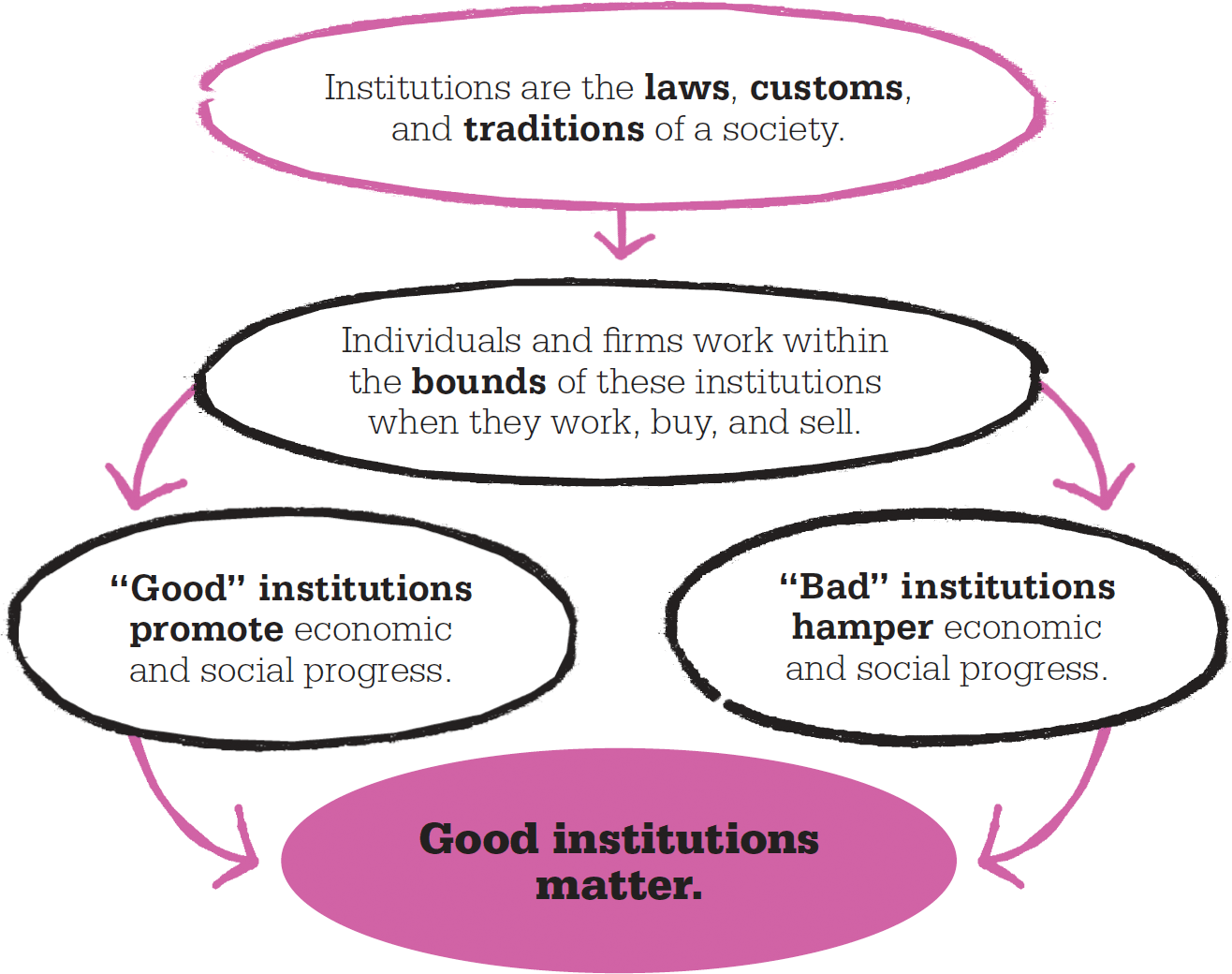

Society and the economy
Douglass North (1920–)
1904 US economist Thorstein Veblen argues for the primacy of institutions in explanations of economic performance.
1934 US economist John Commons states that economies are complex webs of institutions and divergent interests.
1993 US economist Avner Greif uses game theory to analyze the historical development of institutions that allowed trade to develop.
2001 Turkish-US economist Daron Acemoğlu explains institutional differences between countries in terms of their colonial origins.
Standard economics assumes the existence of markets. It also assumes that governments have the policy levers necessary to encourage markets towards beneficial kinds of trade, investment, and innovation. However, institutional economists go deeper—they search for the origin of markets, their involvement with the state, and the political and social conditions that help economic activity.

US economist Douglass North defined institutions as the “humanly devised constraints that shape human interaction.” These constraints are the “rules of the game,” and appear in both formal and informal guises. Formal constraints are the rules that are rooted in the law and politics of each country, while informal constraints are a society’s social codes, customs, and traditions. Combined, these make up North’s institutions, and they set the broad rules of the game within which humans interact as workers, consumers, and investors.
"Institutions provide the incentive structure of an economy."
Douglass North
Property rights—of physical and intellectual property—are an institution essential for economic growth. North investigated the emergence of property rights in England, claiming that they began in 1688, the year in which the Crown was made subservient to Parliament. Before then, the monarch would commonly expropriate resources, riding roughshod over private property rights. North found that after the power of the Crown was restricted, exchange became less costly and incentives improved. His view has been challenged, but the approach remains influential.
North’s example reveals a tension that lies at the heart of institutional economics. The state guarantees order, which gives it the power to activate property rights, because they cannot survive under anarchy. However, it is this very power that also allows the state to use resources for its own benefit.
The Turkish-American economist Daron Acemoğlu (1967–) showed that this tension is rooted in societies’ colonial origins. In regions such as Africa where infectious diseases threatened, colonists did not stay long. Institutions were set up with the purpose of extracting natural resources quickly for a state’s self-enrichment, not to foster economic growth. In the more congenial North American colonies, however, settlers established institutions that promoted long-term growth.
Institutions determine the success or failure of economies—they create the essential structure. Economists have yet to identify clearly the institutional mutation that triggers economic progress. Reform to institutions is difficult, with the past always leaving traces in the present.

The German Bundestag (parliament) was a new institution set up after 1945. Its role was important in shaping post-war Germany’s law and economy.

Douglass North was born in Cambridge, Massachusetts. As a student at the University of California in Berkeley, he refused to serve in World War II, and after graduating joined the US merchant marines to avoid fighting. During his three-year service he read many economics books, and found it hard to choose between studying photography (a lifelong hobby) and economics on his return to the US. Economics won out, and he received a PhD from Berkeley in 1952. He began teaching at the University of Washington, where he helped to found the new field of cliometrics (the economic and statistical analysis of history).
North taught at the University of Washington until 1983, but in 1966 he spent a year in Geneva studying European economic history, awakening his interest in the role of institutions. He was awarded the Nobel Prize for economics in 1993.
1981 Structure and Change in Economic History
1990 Institutions